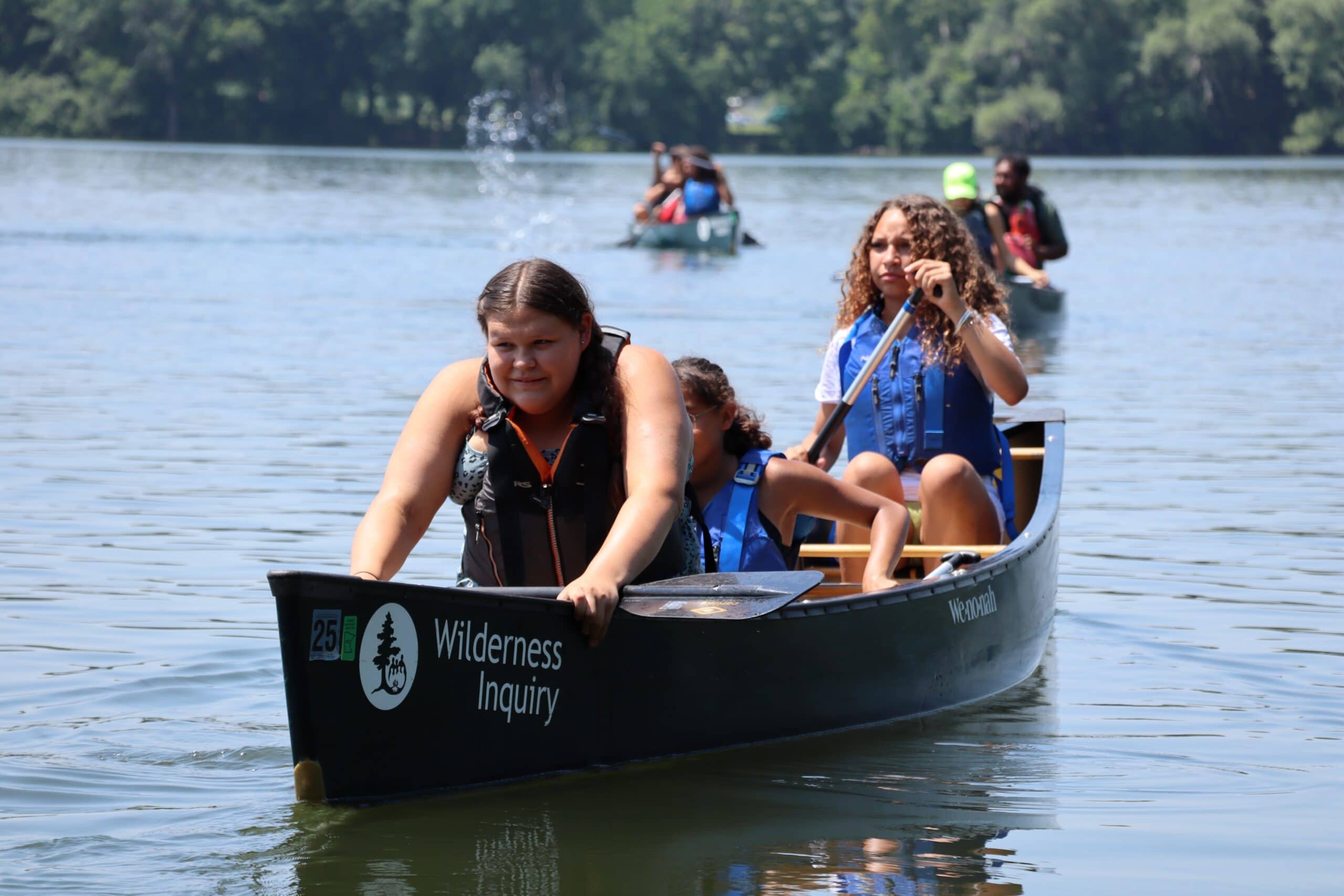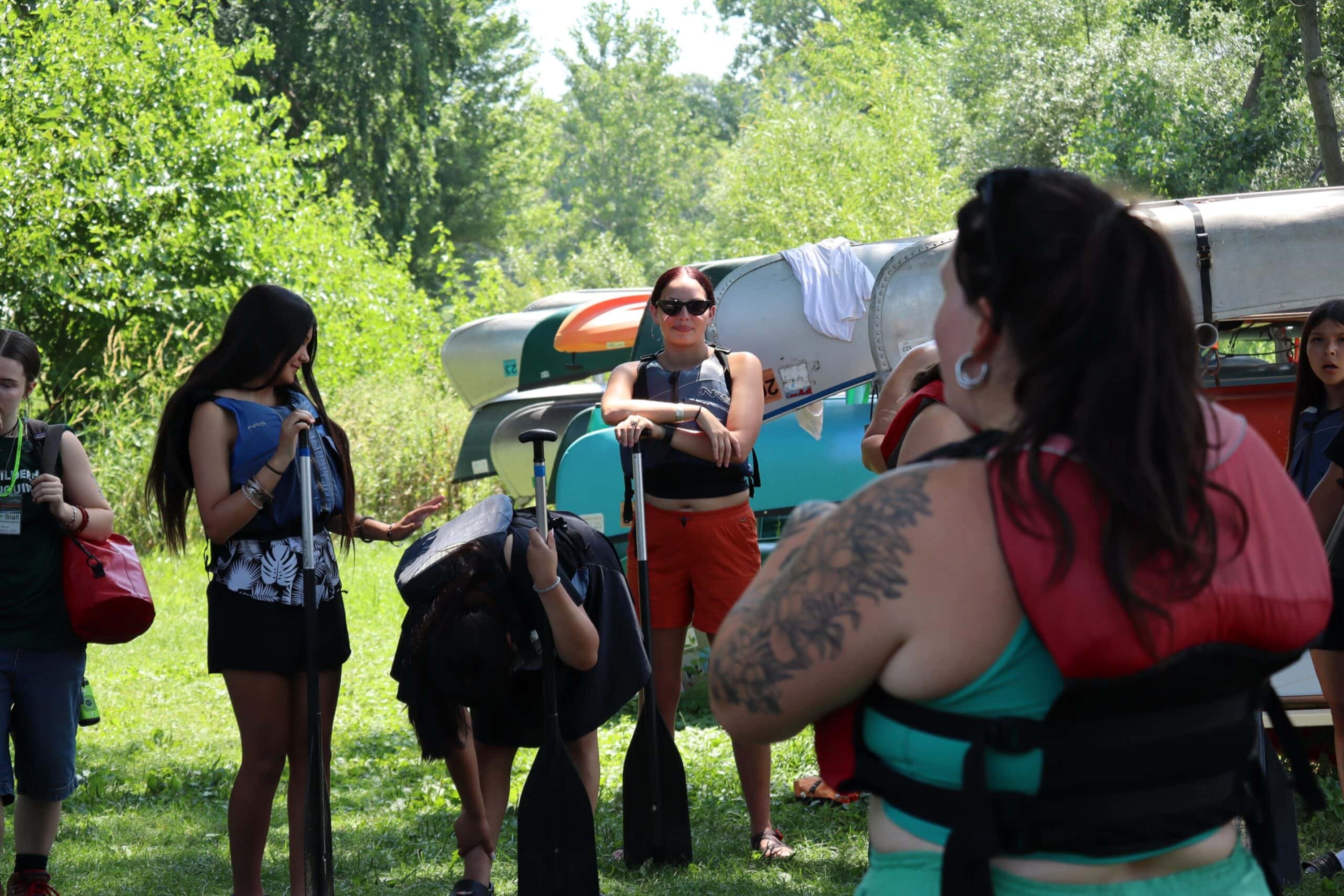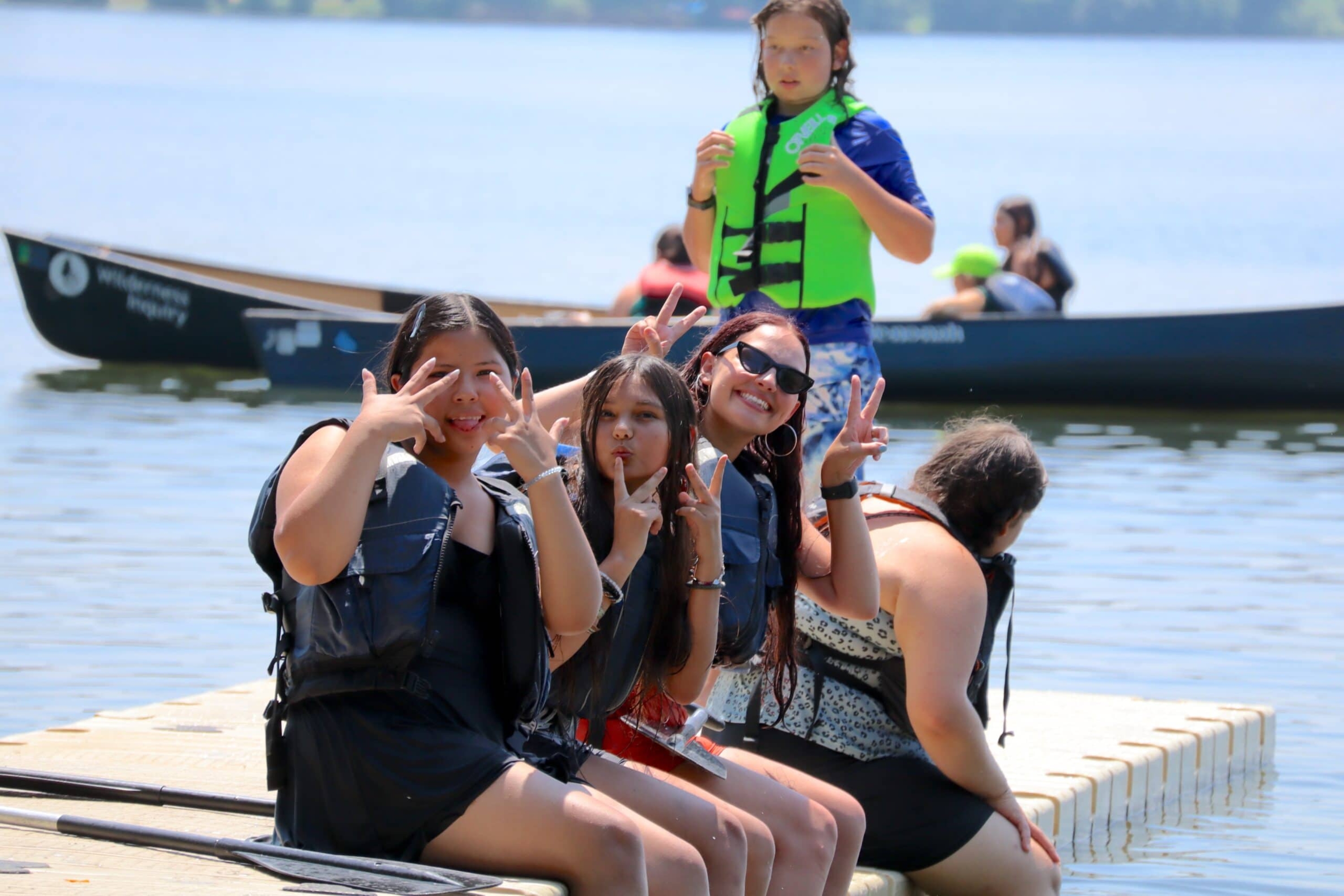In the thick of a steamy mid-July afternoon standing along the shores of Minneapolis’ Lake Nokomis, Isaac didn’t hesitate a beat to share some high hopes for his upcoming trip to the Boundary Waters Canoe Area Wilderness (BWCAW). Hooking his thumbs through the shoulder straps of his bright-blue PFD, he deftly parried a suggestion of trip nerves implied in the question:
I’m feeling excited. I’ve heard the Northern Lights are pretty good to see and I really want to see them this year. And I just don’t want to have any stormy days or windy days. Just some cool days because the windy days can be stressful.”
Isaac is a participant with MIGIZI, a Minneapolis-based, Indigenous-led organization serving Native youth. And the 11-year-old’s hopes, while lofty, seemed equally grounded in a confidence about his group’s readiness. Preparation is at the core of any safe and successful outdoor adventure — the right gear, proper nutrition, and competency in one’s skills. To this end, Wilderness Inquiry was proud to partner with Friends of the Boundary Waters this summer for a series of skill-building day experiences with MIGIZI staff and youth from their 2025 Summer Water Sovereignty Program.
Ahead of their planned BWCAW adventure, MIGIZI participants spent several valuable days in July practicing canoe rescues, paddle techniques, camp set-up, backcountry cooking, water quality testing, and learning about threats to northern Minnesota’s famed lakes. All of this served as important groundwork for the students — many of whom had rarely if ever been camping or canoeing, much less faced the greater challenge of a Boundary Waters expedition.
Getting Ahead of the (Learning) Curve
That’s where curriculum like this comes into play. There is often a real, and sometimes underestimated, learning curve associated with outdoor adventures. According to Tyler Sanders — Wilderness Inquiry’s Outdoor Leader Coordinator for Day Trips — getting ahead of that curve prior to starting the adventure often leads to better outcomes, particularly for participants who may be having such an experience for the very first time. “It’s not always the most conducive time to teach new skills when participants have to make it to their launching point, then have a long day of travel ahead to their campsite, and finally have to set up camp in an environment they aren’t used to,” Tyler described.
Skill-building days function as a pressure release valve, venting off some of the nerves participants may have about learning and performing skills in the heat of their trip. Wilderness Inquiry staff and partners like Friends of the Boundary Waters use “model then mentor” techniques to break down sometimes complex topics: showing the basics step-by-step and then leading practice sessions until participants can demonstrate them themselves.
And it goes beyond forging so-called “hard” outdoor skills, from knot-tying to fire-building to tarp setup. Just as important is cultivating a strong team dynamic, a deep sense of confidence and connection to each other that hopefully lasts long beyond the trip’s last hike or paddle stroke. “We incorporate team-building components with the lessons to start forming connections with the peers they are traveling with,” said Tyler. And in a less practical sense, promoting play through games simply allows students “to have fun throughout the day.”
Putting it All Together
Fun and education were certainly had throughout MIGIZI’s skill-building events, but the culmination came at the end of the month with their annual BWCAW trip in July. MIGIZI youth and staff spent five days paddling, portaging, and camping in the very waters they had spent this summer learning so much about. Mishaila Bowman — MIGIZI’s Culture, Leadership, Academics, Wellbeing (CLAW) Program Director — described how their group’s preparation lended itself to a safe and successful experience.
I think our weekly sessions with Wilderness Inquiry got our youth excited to be on the water as well as more familiar with canoeing and setting up camp,” she said.
She also shouted out everyone at Friends of the Boundary Waters for their key partnership in these events and for the important groundwork they laid: “It was great to work with [them] to learn more about the water quality in our own backyards at Lake Nokomis as well as the current threats to the [BWCAW].”
At Wilderness Inquiry, we often use a pyramid model of engagement to visualize the pathways of participation a person may take along their outdoor journey: from a base of Day & Multi-Day Programs to a core of Near Nature & Extended Overnight Adventures up to a capstone of Leadership and Career Pathways. Skill-building experiences form a critical component of that base, which — as Tyler and Mishaila both touched on — provides a key entry point for those perhaps newer to outdoor adventures.
And just like a real pyramid, cultivating confidence and connection with oneself and others is an achievement built brick by brick. Not the easiest nor fastest endeavor, but one that is long-lasting, worthwhile, and can never be done alone.
“A lot of the youth we worked with this summer had never been canoeing or camping,” Mishaila affirmed. So as she put it, “It was really lovely to see the ones who were more timid in the beginning grow in their confidence and build relationships with the water and each other.”
Images and text by Jake Marble, Outdoor Leader Coordinator – External Relations
 STEM-based learning is funded in part by the Minnesota Environment and Natural Resources Trust Fund as recommended by the Legislative-Citizen Commission on Minnesota Resources (LCCMR)
STEM-based learning is funded in part by the Minnesota Environment and Natural Resources Trust Fund as recommended by the Legislative-Citizen Commission on Minnesota Resources (LCCMR)





Judy Landsman says
What a great program! And what happy, confident young faces!
Victoria Troyo says
What a awesome program. I wish they had this when I was young. The skills and confidence these young folks will come away with will open a whole new world for them. Very good article.